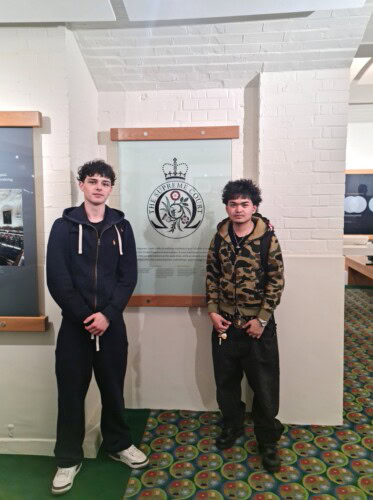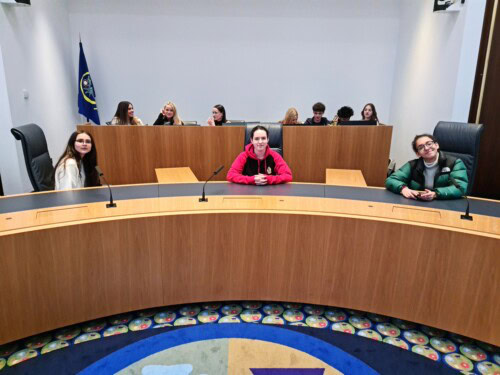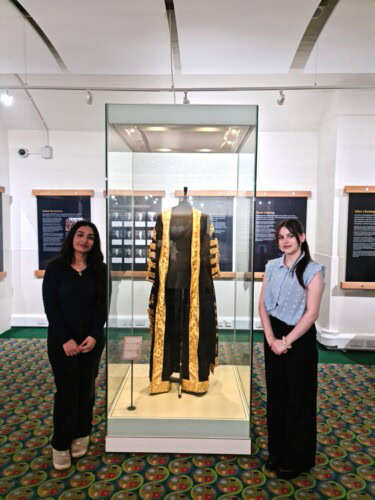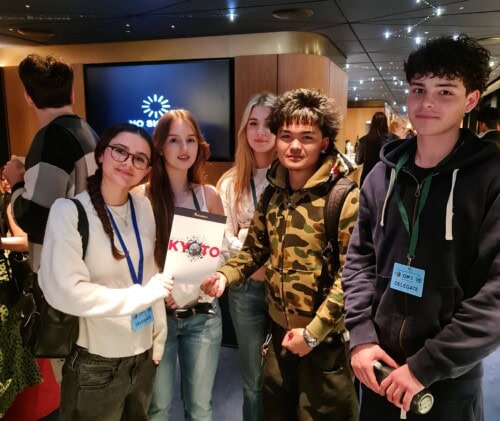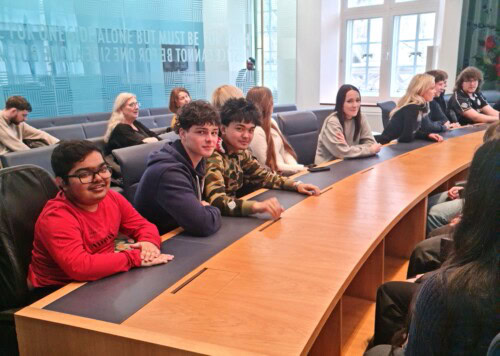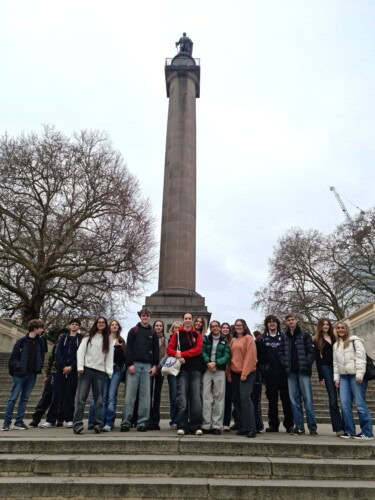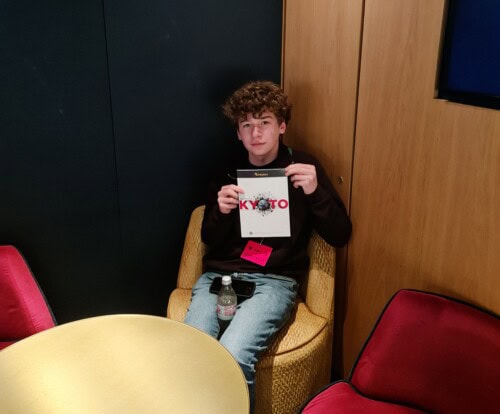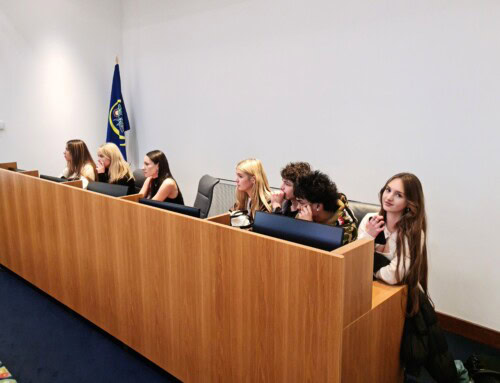From Courtroom to Kyoto: Politics in Action
6.1 Politics students enjoyed an action-packed visit to London, combining an insightful tour of the Supreme Court with an evening at the theatre, where they watched the gripping political drama Kyoto at Soho Place.
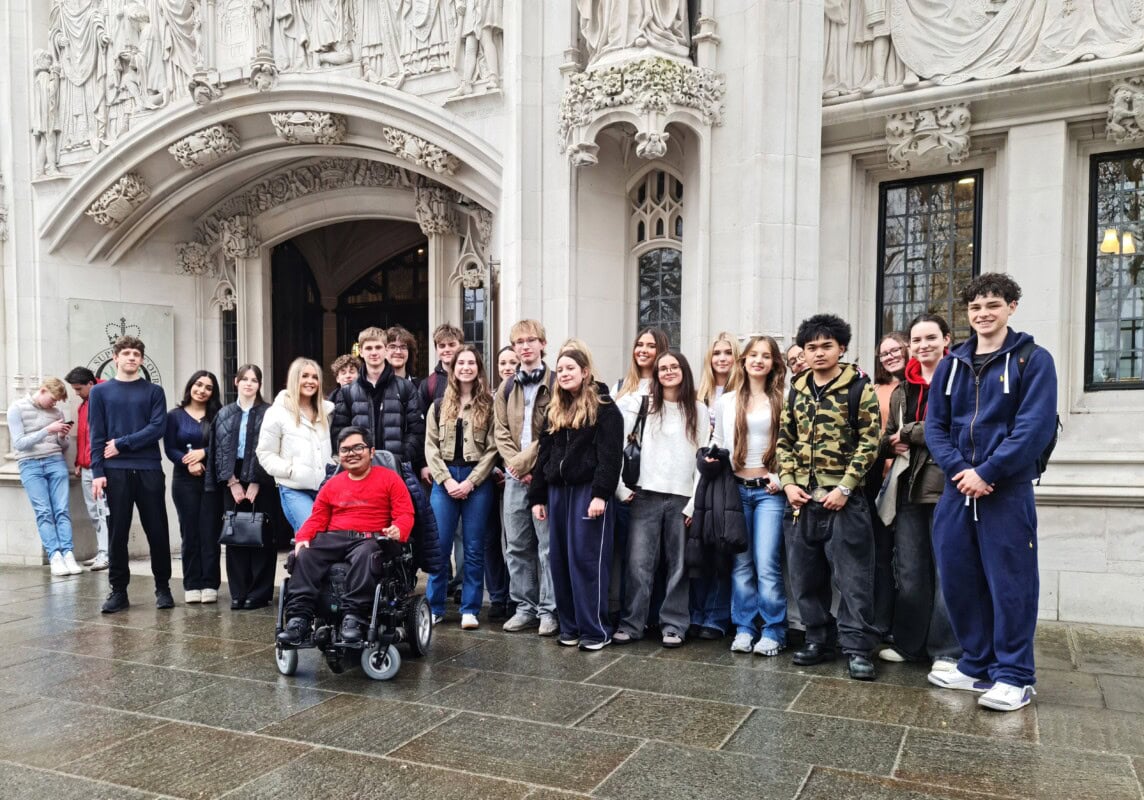
During the day, students explored the Supreme Court, gaining firsthand experience of the UK’s highest court of appeal. They toured the different chambers, delved into the constitutional role of the judiciary, and critically assessed its effectiveness as a check on government power.
6.1 Politics student, Abhinav R., wrote this report,
The visit provided us with an opportunity to put our learning into a real-life context. It was interesting to see what we had learnt about the judiciary put into action in real life context.
We had a tour around the Supreme Court building and saw what inside the court rooms. It was surprisingly different from the ordinary local county courts in terms of layout. We also found out about the history of the Supreme Court. It was fascinating to learn how the Supreme Court used to be the headquarters of the Middlesex County Council before it went on to become the Supreme Court.
We were also able to play out a court case based off a real case. We the different perspectives related to the case which helped us to learn how cases in the supreme court are fought out and how long the cases take.
The trip was highly enjoyable, and I would highly recommend this trip to future politics students.
In the evening, the students attended the play Kyoto, a political thriller by Joe Murphy and Joe Robertson. The drama transports audiences to the Kyoto Conference Centre on 11 December 1997, where world leaders struggled to negotiate the first legally binding emissions targets.
6.1 Politics student, Jessica K., found the play particularly interesting and wrote this report,
Coinciding with Esher’s Green Week, the show was told from the perspective of a Washington lawyer who was hired by the big oil companies to derail any negotiations between nations to try and help fight climate change and reduce carbon emissions over the span of 10 years. The show was set up as an interactive experience with the stage being a table with some audience members sitting on the stage with the actors. As well as this, all audience members were given lanyards with countries on which helped make you feel more connected to the actors and the situation.
As a student who takes Model UN as a complementary study and has attended a Model UN conference in London the play was especially interesting and effective in displaying how negotiation talks can be long and ineffective, However, it also showed how people can work together, how enemies can get over their differences and how unlikely alliances are formed through common interests.
Throughout the play the fourth wall is broken by the Washington lawyer, which added a sense of conflict with your understanding throughout the play that the person telling the story is not the protagonist but rather the antagonist. As well as this, by breaking the fourth wall a sense of humour was added with things like the drinks at intermission being commented on as well as the music used in dramatic moments making the play educational as well as funny.
The play was very educational as I was not aware of any of the preceding’s leading up to the COP 3 and the absolute struggle it was for the Kyoto treaty to be signed and the hard work it took for all the delegates over 10 years to try and make our planet a better place to live in. Overall, the play reaffirmed to me my interest in politics and how important negotiation and discussion is for international cooperation and for Earth.
6.1 Politics student, Griffin P., had a different view of the performance and shared his thoughts,
I went into the theatre hoping to enjoy every minute of the play. However, as I watched it, I was waiting for the climax and when the play reached that point, I just didn’t feel satisfied. I could understand why people enjoyed it, but I did not think it was extraordinary or the best play of the year, as advertised outside. It discussed a very important issue facing the world currently (whilst set in the past), but I felt that whilst it was intense, it lacked the thrill I was hoping for. Despite that, the most memorable part of the play was the man who played the Argentinian Ambassador to China, who was hilarious. Overall, it wasn’t my favourite piece of media, but I can understand why it is important.
Whilst a busy day in London, this trip provided students with a valuable opportunity to witness firsthand law, politics, and environmental policy, deepening their understanding of both the UK’s legal system and the complexities of international negotiations.
